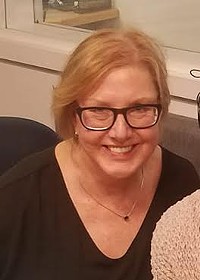Money Is All You Need
We in the print media understand television's time constraints, but some things are more important than a commercial break. Take the Utah Debate Commission's decision to allow only candidates who reached a 10 percent threshold in a poll. They said 6 percent was OK, allowing for error. But that left out third-party and independent candidates who had gained access to the ballot legitimately, by providing a certain number of signatures. In the end, it was probably a way to give the woebegone Democrats a chance in hell, which is what they'd need to win statewide office. But it doesn't seem right, and it plays to the money-in-politics crowd. Alternative candidates can't get their message out because they have little money, and they can't get more money because they can't get their message out.
Chit Chat
And on the debate issue, let's talk about the 2nd Congressional District in which U.S. Rep. Chris Stewart and Utah Sen. Luz Robles chatted amicably. It was almost a non-debate, with the "hard-hitting" question from Stewart asking about the sex of Robles' baby-to-be. We won't call that sexist, but it was condescending to someone who, though pregnant, still has a brain. The worst was yet to come as moderator Barbara Smith cut off Stewart before he could answer Robles' question about the role of the federal government. Oops. Commercial break. Smith, a former television anchor and BYU grad, had obviously not done her homework on the issues. But that makes her like many Utahns who still believe the Common Core came from the feds. Perhaps the elephant in the room was Stewart's harping on his religion and how he wouldn't go against those beliefs.
Salt & Wind
In Utah, you've got to love salt. Now, there's a clean-energy reason to, as deep salt caverns outside of Delta may be used to store compressed air. That stored air, which would come from new Wyoming wind farms, would eventually be sent as energy to California's Los Angeles basin. The project is an $8 billion effort by four companies that's expected to be up and running by 2023. While each piece of the puzzle was already being put in place, the integrated aspect of the plan is new and innovative. The urgency to create clean energy is palpable as plans for a nuclear facility in Green River move inexorably forward. Moreover, Rocky Mountain Power doesn't plan to build new renewable facilities until 2024.
More by Katharine Biele
-
Mike Lee and other pro-natalists ramp up efforts to boost Utah's lagging birthrate.
Making Babies
- May 28, 2025
-
Utah lawmakers pitch berms and Band-aids as political will to save The Great Salt Lake evaporates.
Hits & Misses
- May 28, 2025
-
"Water For Elephants" becomes the 18th book banned from Utah schools.
Hits & Misses
- May 21, 2025
- More »






